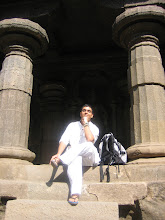 Naming conventions around the world vary greatly but there is one thing that they almost all have in common: names are given to us just after we’re born or when we’re still very young. Every name has some meaning associated with it but this idea becomes especially important when we look at names associated with our spiritual lives. When people make a commitment to making their spiritual beliefs the center of their lives, quite often they take on a new, “religious” name to signify this. This practice is seen within many religious traditions, particularly when men and women receive ordination. The name that is given is often a reflection of the person’s background or aspirations. For example, Ven. Heng Sure, of the Berkeley Buddhist Monastery, was a stage actor prior to his ordination. When he met his teacher, Master Hsuan Hua, the master decided to give him the Dharma name ‘Heng Sure’, meaning ‘constantly real’ in Chinese. The reason for this is that an actor is someone who is concerned with something that’s ultimately not real. A monastic however, is someone who devotes their life to discovering and examining the true nature of reality.
Naming conventions around the world vary greatly but there is one thing that they almost all have in common: names are given to us just after we’re born or when we’re still very young. Every name has some meaning associated with it but this idea becomes especially important when we look at names associated with our spiritual lives. When people make a commitment to making their spiritual beliefs the center of their lives, quite often they take on a new, “religious” name to signify this. This practice is seen within many religious traditions, particularly when men and women receive ordination. The name that is given is often a reflection of the person’s background or aspirations. For example, Ven. Heng Sure, of the Berkeley Buddhist Monastery, was a stage actor prior to his ordination. When he met his teacher, Master Hsuan Hua, the master decided to give him the Dharma name ‘Heng Sure’, meaning ‘constantly real’ in Chinese. The reason for this is that an actor is someone who is concerned with something that’s ultimately not real. A monastic however, is someone who devotes their life to discovering and examining the true nature of reality.A Dharma name is usually accompanied by some sort of title such as fa shi (Chinese for ‘Dharma teacher’), sramanera/sramaneri (Pali: novice monk/nun), upāsaka/upāsikā (Sanskrit for male/female lay follower). As you can imagine, there are many names and titles to be had and while some of these may be obscure, others are instantly recognizable. One of the oldest and most well known is that of the Bodhisattva Mahāsattva, Avalokiteshvara.
To begin, let’s first look at the title. Bodhisattva is usually translated as ‘enlightening being’ (bodhi = enlightenment/awakening, sattva = being). Similarly, mahāsattva (pronounced muh-huuh-sat-tva) can be rendered as ‘great/heroic being (mahā = great). The phrase ‘bodhisattva mahāsattva’ as a whole means ‘great enlightening being’.
The name of the bodhisattva (pronounced ‘uh-vuh-low-kit-esh-vara’) has an interesting history. It comes down to us from the Sanskrit and is composed of two parts. The first part, ‘avalokita’, means (1) ‘seen, viewed, observed, looking at, beholding’. The second part, “īshvara”, means “master, lord, king/queen, and supreme being”. The ‘ī’ in īshvara and the final ‘a’ in ‘avalokita’ change to an ‘e’ when the two parts are combined. This slight changing of sound is a common feature of Sanskrit grammar called sandhi. We see the same thing in English when we put an ‘a’ before a consonant (e.g. a car) but use ‘an’ before a vowel sound (e.g. an apple). ‘Avalokiteshvara’ therefore means “the lord who observes”.
‘Avalokiteshvara’ however, is a later form of the name (2) and earlier texts use the closely related form ‘Avalokitasvara’. Here, ‘avalokita’ has the same meaning but the ‘svara’ (from ‘svana’) means (3) “sound/noise”. Combining the two parts, we can translate it as “one who perceives/observes sound”. This meaning matches up with the Chinese rendering of the bodhisattva’s name as ‘Guan Shih Yin’ (觀世音). We’re now ready look at the being behind the name.
Avalokiteshvara is described as the bodhisattva who is foremost in the practice of compassion. This designation is intimately tied to his (4) practice of mindful, deep, unbiased, and insightful listening. In the Shurangama Sūtra (5), he describes this in detail, starting with the following verses:
First, I was united above with the fundamental, wonderfully enlightened mind of all the Buddhas of the ten directions, and I gained a strength of compassion equal to that of all the Buddhas, the Thus Come Ones.Later in the sūtra, the Bodhisattva Manjushri, known as foremost in the practice of transcendent wisdom, praises Avalokiteshvara’s deep listening practice:
Second, I was united below with all living beings in the six paths, and I gained a kind regard for all living beings equally.
“I now say this, World Honored One,It’s easy to get lost in the loftiness of the above verses but the message being conveyed is
Buddha, who has revealed the Saha world:
In this land the true substance of teaching
Resides in hearing the sounds purely.
If one wants to attain samadhi,
hearing is the best way to enter.
”Apart from suffering, liberation is found.
How excellent is he who contemplates
the world’s sounds!
”Throughout kalpas as numerous as Ganges’ sands,
He enters Buddhalands as many as fine dust motes.
Obtaining great power of self-mastery,
He bestows fearlessness on living beings”.
 simple: listening is powerful. Perhaps this might involve listening to a friend or loved one. Perhaps it involves listening to the complaints of co-workers. It can especially mean having someone around to listen to us. The kind of listening mentioned here is not simply interpreting a series of noises as words. To deeply listen means not only opening our ears but opening our hearts as well. So much trouble, from petty quarrels to terrible wars, arises simply because no one truly listens. Listening doesn’t mean we have to like or agree with what we hear. Listening also doesn’t mean that we have to necessarily respond or remain silent. We may have the noblest intentions and a pure heart but before we can act, before we can even begin to think about doing something, we must listen.
simple: listening is powerful. Perhaps this might involve listening to a friend or loved one. Perhaps it involves listening to the complaints of co-workers. It can especially mean having someone around to listen to us. The kind of listening mentioned here is not simply interpreting a series of noises as words. To deeply listen means not only opening our ears but opening our hearts as well. So much trouble, from petty quarrels to terrible wars, arises simply because no one truly listens. Listening doesn’t mean we have to like or agree with what we hear. Listening also doesn’t mean that we have to necessarily respond or remain silent. We may have the noblest intentions and a pure heart but before we can act, before we can even begin to think about doing something, we must listen.Thich Nhat Hanh's Plum Village Sangha has a wonderful chant that invokes the names of various bodhisattvas. Bodhisattva 'number one' is, surprise, surprise, Avalokiteshvara:
We invoke your name, Avalokiteshvara. We aspire to learn your way of listening in order to help relieve the suffering in the world. You know how to listen in order to understand. We invoke your name in order to practice listening with all our attention and open‑heartedness. We will sit and listen without any prejudice. We will sit and listen without judging or reacting. We will sit and listen in order to understand. We will sit and listen so attentively that we will be able to hear what the other person is saying and also what is being left unsaid. We know that just by listening deeply we already alleviate a great deal of pain and suffering in the other person.***
(1) Monier-Williams Sanskrit-English Dictionary, Motilal, 2005, reprint, pp. 103, 171
(2) The word ‘Īshvara’ is also an epithet for the Hindu god Shiva. It’s believed that the shift from ‘asvara’ to ‘īshvara’ may have been the result of the increasing influence Buddhism and Hinduism began to exert on each other as time passed in India. For a fascinating study, see Alexander Studholme’s “The Origins of Om Manipadme Hum”. SUNY Press, 2002
(3) Monier-Williams Sanskrit-English Dictionary, Motilal, 2005, reprint, p. 1280
(4) In the ancient Indian sources, Avalokiteshvara is almost always referred to and represented either as a male or an androgynous figure. In East Asia however, the bodhisattva is usually represented as a female in the form of Guan Yin. Because this thread is focused on the Indian sources, the pronoun ‘him’ will be used.
(5) From the Buddhist Text Translation Society’s translation of the Shurangama Sūtra. The full text can be found online. They also have many other sutras posted up.









1 comment:
a lovely, resonant discourse . . . thank you
Post a Comment